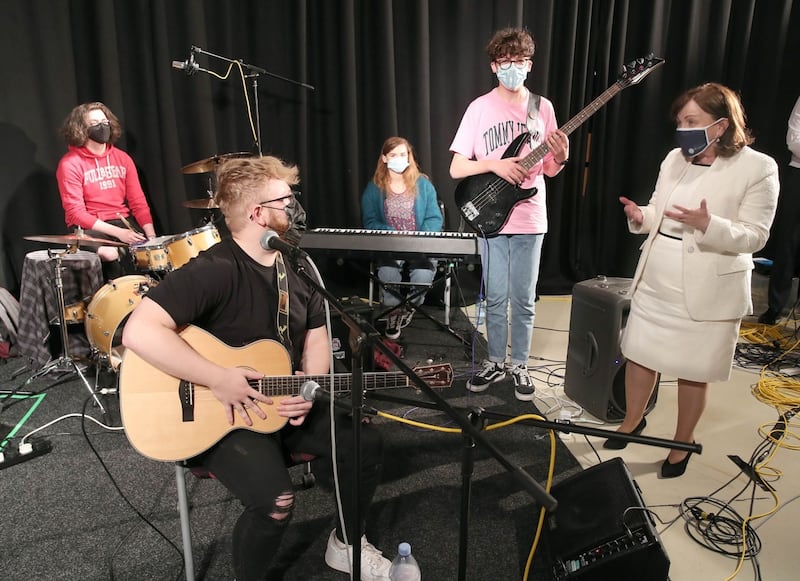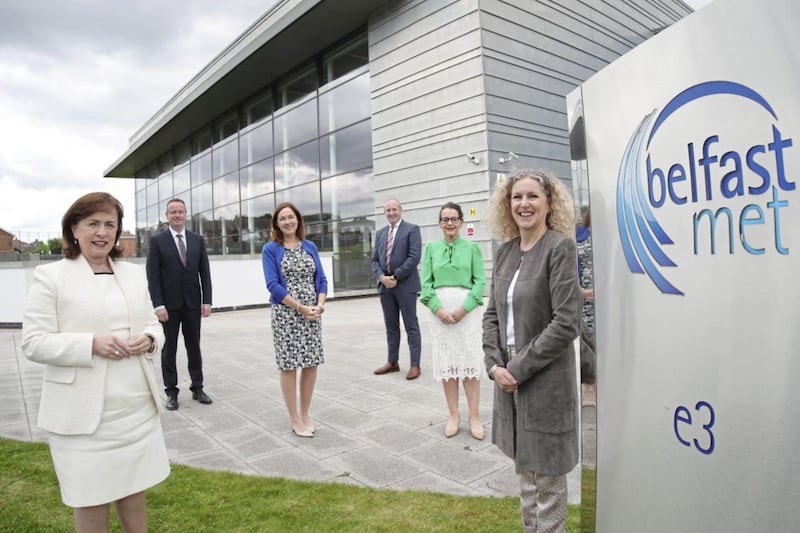THE executive would need to spend an extra £461 million a year on education and skills to bring expenditure back to the level of a decade ago, according to a new report.
The Department for the Economy’s new skills strategy, published today, states that investment in education and skills development has fallen substantially since the last strategy was launched in 2011.
The ‘Skills for a 10x Economy’ paper, which is now open for public scrutiny, contains 34 proposals to overhaul Stormont’s strategic approach to skills in a bid to avoid the significant undersupply of STEM (science, technology, engineering, and mathematics) skills in the north’s workplace over the next decade.
But the response will come at a cost.
Skills for a 10X Economy states a ‘real terms’ return to 2010/11 levels of expenditure would require the executive to invest an additional £461m per annum.
The paper states that since 2011, policy decisions on higher education tuition fees have limited the capacity of universities to raise revenue, leaving per capita student funding behind other UK regions.
“This limits opportunity for individuals across Northern Ireland and is detrimental to the realisation of our economic potential.”
The paper warns that failing to prioritise and tackle Northern Ireland’s growing skills deficit in the face of a recession will stifle economic recovery.
“It will represent a missed opportunity to reset our economy towards long-term growth and prosperity and to make a real impact on deepening social inequalities.”
Economy Minister Diane Dodds said delivering on the new strategy will require investment.
“I will work with my executive colleagues to secure the required support,” she said.
The new strategy analyses the north’s future skills needs, projecting a significant undersupply of level three STEM qualified individuals.
The strategy states that particular attention must be given to ‘narrow STEM’ fields: Physical, environmental and computer sciences; engineering and mathematics.
“Success in this area is crucial to our economic vision,” it states.
The paper also links deprivation to education and employment outcomes and highlights the significant oversupply of individuals with low or no qualifications.
The new approach proposes making the skills strategy ‘a whole of government strategy’, which could see it included in the executive’s programme for government.
A ring-fenced skills fund is also proposed, along with a new Skills Council, which would comprise senior figures from across government, business, education and the trade unions.
Northern Ireland’s shortcoming in lifelong learning is also acknowledged, with levels well below Britain and the Republic.
“We fall behind counterparts in the UK and Ireland, and participation is lower than the OECD average.”
Speaking at Belfast Met’s E3 Campus, Diane Dodds said: “My ambition is to transform Northern Ireland into one of the world’s elite small open economies and skills are crucial to achieving this goal. I cannot overstate this.

“We already have a talented workforce but we need to capitalise on it. Investing in our skills and talent will deliver more and better job opportunities, greater earning potential, better individual wellbeing and, in turn, an improved overall economy.
The minister added: “I want to hear from everyone who has a view on what Northern Ireland’s future skills base should look like – please engage with the consultation and make your voice heard on how we can deliver better skills, better jobs and better lives.”
The ‘Skills for a 10x Economy’ document has already been endorsed by DfE’s Skills Strategy Advisory Group, which is made up of senior figures from across the business and education sectors.
Jackie Henry of Deliotte, who chairs the group, said: “I cannot overstate the importance of a skilled workforce to our economic progress.
“Skills will be key to the recovery of the local economy and it is essential that the business community across all sectors have a voice in shaping that future.”




